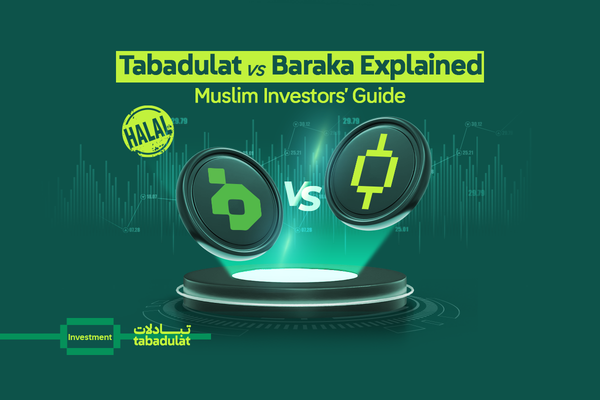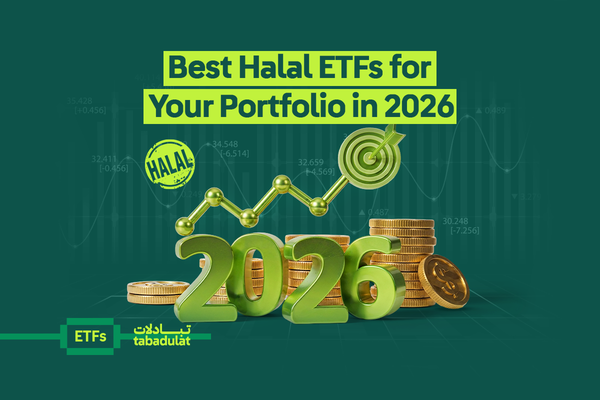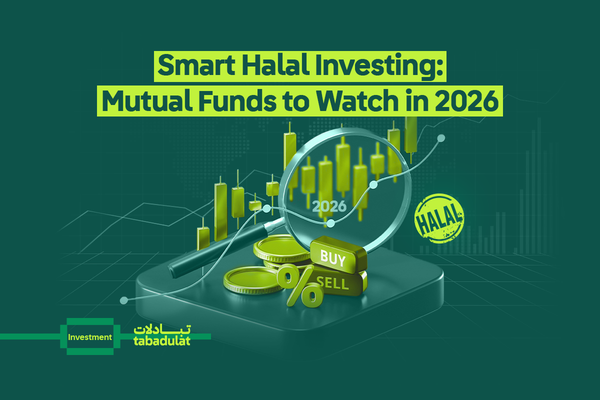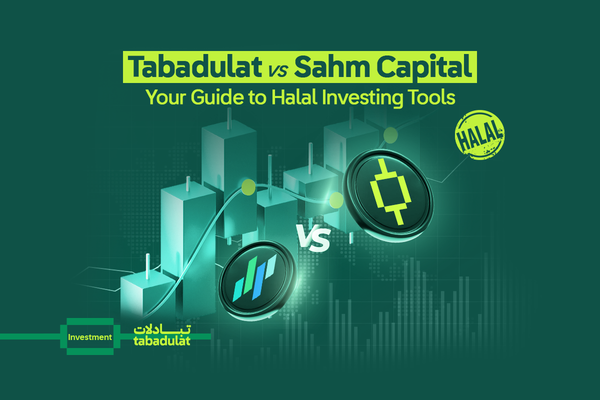Top 10 Shariah-Compliant Stocks by Market Cap 2025
Explore the top 10 Shariah-compliant stocks of 2025, including Apple, Microsoft, and Aramco. These halal investments meet AAOIFI standards, offering ethical growth across tech, energy, and healthcare sectors.
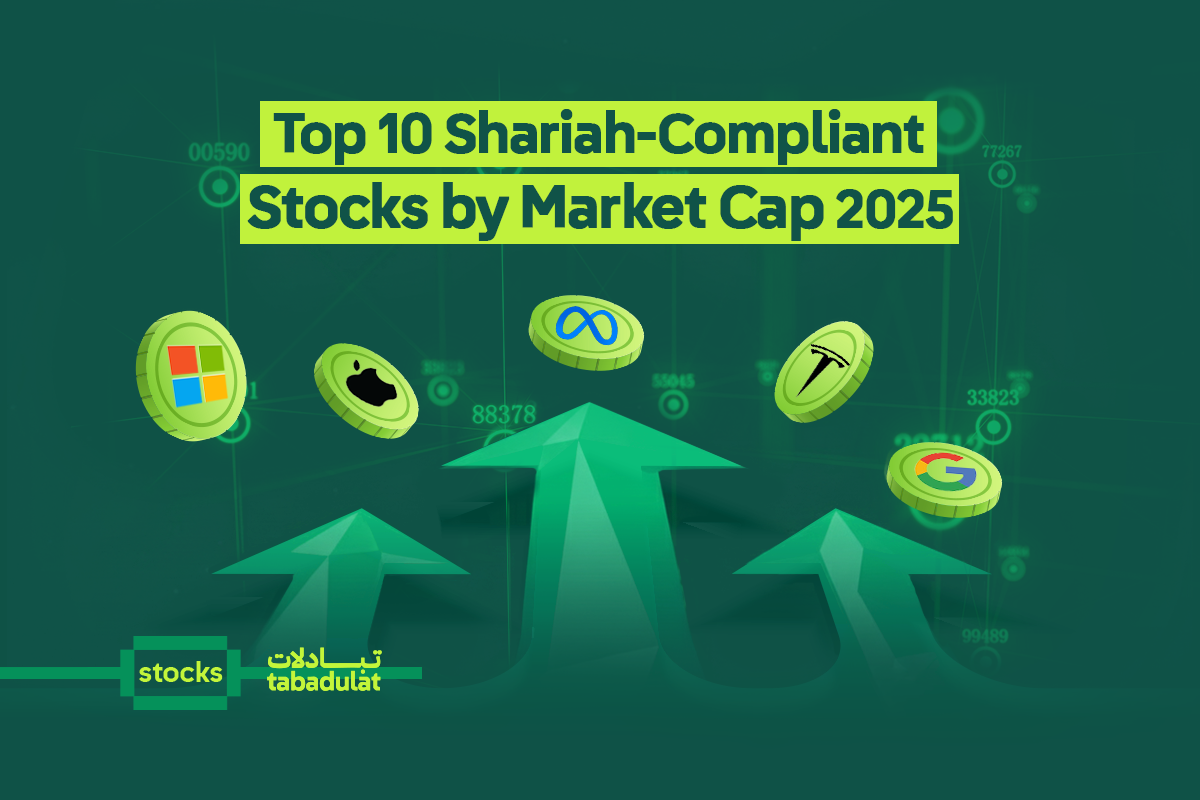
In the rapidly evolving landscape of global finance, Shariah-compliant investing presents a unique pathway that blends ethical principles with compelling growth opportunities. As of 2025, the world's top Shariah-compliant companies boast a combined market capitalisation exceeding $16.9 trillion, underscoring their massive influence and resilience in the global economy. These industry giants span innovation-driven technology hubs in the United States and Taiwan to energy powerhouses in the Middle East, representing a broad spectrum of vital sectors including technology, communication, energy, healthcare, and consumer goods.
This elite group not only exemplifies robust financial health but also adheres strictly to the Islamic finance principles outlined by AAOIFI standards, making them attractive options for investors seeking growth without compromising ethical values. These companies are shaping the future through cutting-edge technologies, sustainable energy initiatives, and essential services that continue to drive global demand and innovation. Whether pioneering AI and semiconductor technologies or fueling the world’s energy needs, these ten companies present a compelling convergence of faith-compliant investing and undeniable market strength.
The ranking is derived from PwC’s Global Top 100 companies by market capitalisation as of March 31, 2025. Companies such as Amazon and Berkshire Hathaway, though in the top 10 by market cap, were excluded due to non-compliance with Shariah standards, notably due to business activities involving non-permissible sectors or Riba (interest)-based income. The next highest market cap companies meeting the AAOIFI (Accounting and Auditing Organization for Islamic Financial Institutions) Shariah compliance criteria were included instead.
Ranking the Top 10 Shariah-Compliant Stocks in 2025
Apple Inc. (Market Cap: $3.34 trillion)
Apple remains the world's most valuable publicly traded company, driven by its highly diversified product portfolio, including the iconic iPhone, iPad, Mac computers, and rapidly growing services segment (App Store, Apple Music, iCloud). In fiscal year 2024, Apple generated over $391 billion in revenue with a net income surpassing $93.7 billion, highlighting exceptional profitability. Its relentless focus on innovation, including new chip designs in the M-series and augmented reality devices, cements its leadership in consumer technology. Apple's strong presence in both developed and emerging markets positions it well for sustainable growth within Shariah-compliant investment portfolios.
Microsoft Corporation (Market Cap: $2.79 trillion)
Microsoft is a global technology leader with a dominant position in software (Windows, Office suite), cloud computing (Azure), and enterprise services. Its cloud platform, Azure, saw revenue growth of 29% year-over-year, contributing significantly to Microsoft’s total revenue of $245 billion in 2024. The company’s strategic investments in AI technologies and cybersecurity reinforce its competitive edge. Microsoft complies broadly with Shariah principles, with ongoing screening for its financial activities. Its diversified revenue streams and vast customer base make it a resilient choice for ethical investors.
NVIDIA Corporation (Market Cap: $2.64 trillion)
NVIDIA is at the forefront of graphics processing units (GPUs) demand, powering AI, gaming, data centres, and autonomous vehicles. Its Data centre compute revenue was US$32.6bn, up 116% from a year ago, in the fourth quarter of fiscal year 2025, which ended on January 26, 2025, driven by booming AI workloads and cloud gaming adoption. NVIDIA’s breakthroughs in AI chip design have positioned it as a critical technology enabler in the AI revolution. Despite global supply challenges, its robust order backlog and technological moat place it among the most promising Shariah-compliant tech firms.
Alphabet Inc. (Market Cap: $1.89 trillion)
Alphabet, the parent company of Google, dominates the online search, digital advertising, and cloud markets. In 2024, Alphabet reported $350 billion in revenue, with advertising contributing approximately 76%. Its advances in AI include language models and autonomous driving technology via Waymo. Alphabet’s commitment to innovation and scalability, combined with its core permissible business activities, makes it a viable Shariah-compliant investment when periodically screened.
Saudi Arabian Oil Company (Aramco) (Market Cap: $1.73 trillion)
Aramco is the largest energy producer globally, with proven crude oil reserves of 260 billion barrels and a daily production capacity exceeding 12 million barrels. In 2024, Aramco generated revenues over $436 billion, benefiting from strategic vertical integration in refining and chemicals. Despite facing recent price volatility, its critical role in global energy supply and robust dividends make it a cornerstone Shariah-compliant investment, supported by its alignment with permissible business activities in Islamic finance.
Meta Platforms, Inc. (Market Cap: $1.46 trillion)
Meta leads in social networking and immersive technology with platforms like Facebook, Instagram, and Oculus VR. Revenue exceeded $164 billion in 2024, primarily from digital advertising. Meta aggressively invests in the metaverse, positioning itself at the frontier of virtual interaction. While digital advertising requires careful Shariah screening, Meta’s core communication services generally conform to compliance standards, appealing to growth-focused ethical investors.
Tesla, Inc. (Market Cap: $0.83 trillion)
Tesla revolutionizes the automotive sector with electric vehicles (EVs), producing 1,773,443 vehicles in 2024 and pioneering battery technology through its Gigafactories. Tesla’s revenue reached $97.7 billion, fueled by global EV demand and energy storage solutions. Its commitment to sustainable energy and innovation resonates strongly with Islamic ethical investing, offering exposure to the clean technology sector in a Shariah-compliant manner.
Broadcom Inc. (Market Cap: $0.79 trillion)
Broadcom is a key player in semiconductor and infrastructure software markets, supplying chips essential for wireless communications, enterprise storage, and industrial applications. The company reported over $51.6 billion in revenue in 2024 and benefits from long-term contracts with major tech corporations. Broadcom’s core business activities align with permissible technology sectors under Shariah guidelines, providing valuable tech exposure for ethical portfolios.
Eli Lilly and Company (Market Cap: $0.74 tn)
Eli Lilly is a prominent pharmaceutical company with a focus on diabetes care, oncology, and immunology therapies. In 2024, the company generated $45 billion in revenue, bolstered by blockbuster medications like Trulicity and Taltz. As healthcare services align with Shariah standards, Eli Lilly represents a solid choice for investors seeking compliance combined with defensive growth.
Taiwan Semiconductor Manufacturing Company (TSMC) (Market Cap: $0.71 trillion)
TSMC is the world's largest contract semiconductor manufacturer, producing 90% of the most advanced chips powering consumer electronics, automotive, and industrial sectors. It reported $88 billion in revenue in 2024 and plays a pivotal role in the global supply chain. TSMC’s operational focus on manufacturing and technology innovation fits Shariah compliance criteria, making it a strategic investment for ethical technology exposure.
Global benchmark for Shariah compliance - AAOIFI
AAOIFI standards serve as a global benchmark for Shariah compliance, emphasizing business activities that comply with Islamic ethical and financial principles. The AAOIFI's Shariah Standard No. 21 focuses on two critical dimensions for determining if a stock is halal: the Qualitative Screening of a company's business and the Quantitative Screening of its financial ratios.
Qualitative Screening excludes companies involved in haram business activities such as alcohol, gambling, pork, and weapons.
Quantitative Screening applies three main filters: total interest-bearing debt should not exceed 30% of market capitalization; haram income must be less than 5% of total revenue; and interest-earning (non-compliant) investments should not exceed 30% of market capitalization.
For investors seeking Shariah-compliant equities, platforms like Tabadulat, Zoya, and Sarwa offer curated investment selections vetted for compliance, ease of trading, and portfolio management aligned with Islamic principles. These solutions simplify navigating Shariah guidelines, providing trustworthy access to ethical investment growth opportunities in global markets.
Conclusion
As Shariah-compliant investing evolves alongside rapid technological and economic changes, it is essential for Muslim investors to stay vigilant about compliance while seeking growth opportunities. Beyond individual stocks, diversifying through halal ETFs, sukuk, and other Shariah-compliant instruments can provide stability and alignment with Islamic financial principles.
Platforms like Tabadulat, Zoya, and Sarwa offer comprehensive tools that help investors screen equities, sukuk, and funds in real-time, making it easier to maintain a truly halal portfolio. Sukuk, for example, offers an attractive way to invest in tangible asset-backed securities that comply with Islamic prohibitions against interest (riba), while still yielding competitive returns.
By combining the power of trusted screening technologies with diversified halal investment vehicles, Muslim investors can confidently build portfolios that reflect their values without compromising on performance. Whether you are investing in leading Shariah-compliant tech giants or diversifying with sukuk and halal funds, the integration of innovation and faith is more achievable than ever.
FAQs
What are Shariah-compliant stocks?
Shariah-compliant stocks are shares of companies that avoid haram sectors such as alcohol, gambling, and conventional banking. They must also pass AAOIFI’s financial ratio screens, ensuring debt and interest income remain below set thresholds. Platforms like Tabadulat, Zoya or Islamicly are Halal Stock Screeners.
How to find Shariah-compliant stocks?
Finding Shariah-compliant stocks requires applying AAOIFI business and financial screens. Tabadulat simplifies this by offering a free halal stock screener, updated in real time, covering global equities, ETFs, and sukuk. This helps investors avoid haram sectors, monitor debt ratios, and build portfolios rooted in Islamic finance principles.
Is Apple stock halal?
Yes. Apple stock is broadly considered halal under AAOIFI standards. Its business in consumer technology is permissible, and its non-compliant income remains within the 5% threshold. Apple also passes key financial ratio screens, making it a viable option for inclusion in Shariah-compliant portfolios when monitored regularly.
Is Microsoft halal?
Yes. According to AAOIFI criteria, Microsoft stock is Shariah-compliant as of 2025. Its core business—software, cloud computing, and AI infrastructure—is permissible, while its riba-bearing debt and non-halal income remain within approved thresholds. Muslim investors should still review compliance quarterly using tools like Tabadulat to track changes.
Is the share market halal?
The share market itself is permissible when investments are screened for Shariah compliance. Buying halal stocks, sukuk, or Islamic ETFs is allowed, provided the companies avoid haram activities and meet AAOIFI’s financial ratios. Platforms like Tabadulat ensure portfolios remain aligned with Islamic finance, avoiding riba and unethical sectors.
Is the stock market halal?
Yes, the stock market can be halal if approached correctly. Muslim investors must avoid speculation, margin trading, and haram industries, while screening financial ratios for compliance. Shariah-compliant investing, supported by tools like a Halal Stock screener helps ensure participation in global markets while upholding riba-free Islamic finance principles.
Can you invest in Islam?
Yes. Islamic investing means choosing halal assets such as Shariah-compliant stocks, sukuk, Islamic ETFs, and real estate. These instruments avoid riba, gharar, and haram sectors, while aligning with AAOIFI standards. Platforms like Tabadulat make it easier for Muslim investors to manage portfolios rooted in Islamic values and ethics.
Are dividend stocks halal?
Dividend stocks can be halal if the company’s core business is permissible and non-halal income is under AAOIFI’s 5% limit. Investors may need to purify dividends by donating the non-compliant portion to charity. Tabadulat’s halal screener helps track dividend permissibility across global equities in real time.

